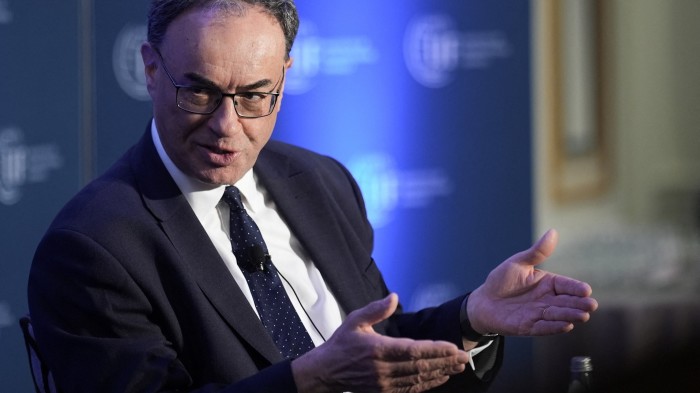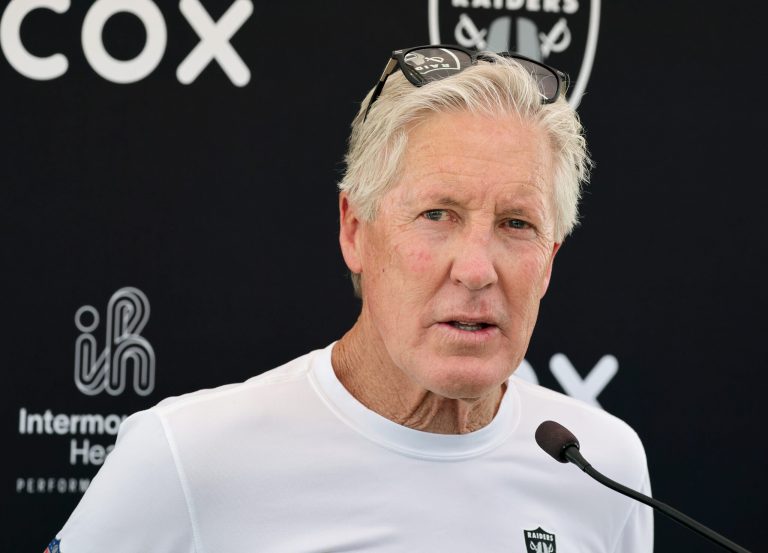Unlock the Editor’s Digest for free
Roula Khalaf, Editor of the FT, selects her favourite stories in this weekly newsletter.
Bank of England governor Andrew Bailey has said the BoE needed to “take seriously” the risks to growth from Donald Trump’s tariff policies, signalling that the central bank was likely to cut interest rates at its next meeting in response to uncertainty over global trade.
“Trade does support growth,” Bailey said in Washington on Wednesday. “Fragmenting the global economy would be bad for growth.”
The US president announced on April 2, ‘liberation day’, that he would apply a 10 per cent “reciprocal” tariff on the UK. While that is far lower than the 20 per cent Trump intends to apply on the EU and many other trading partners, Bailey said British growth would nevertheless be affected.
“The UK is a very open economy. It’s not just the relationship between the US and the UK — it’s the relationship between the US and the rest of the world,” Bailey said at an Institute of International Finance conference. He added that this meant the Bank had to “take seriously” the global effects of Trump’s policies.
Traders are expecting a quarter-point cut at next month’s meeting of the bank’s Monetary Policy Committee, set for early May, according to levels implied by swaps markets, and another two or three by the end of the year.
The Trump administration has paused many of the measures unveiled on April 2 for 90 days following a big sell-off in equities markets, US government debt and other dollar assets following the president’s announcement.
While markets had “functioned in the past few weeks”, Bailey said the Bank was keeping a close eye on the possibility of a rapid unwind of certain institutions’ positions in the market for US Treasuries.
Huw Pill, the BoE’s chief economist, said earlier on Wednesday that, given the market’s volatility, whether the central bank decided that quantitative easing was a means of loosening monetary policy, when interest rates hit their lower bound, or was a way of restoring order to dysfunctional markets, was a “live question”.
In the past, the BoE had launched big bond-buying programmes on the basis that it was better to “use a sledgehammer to crack a nut” than risk a full-blown crisis, Pill said. However, more recently, the BoE’s response to the market turmoil that followed former UK premier Liz Truss’s “mini” Budget had shown that more precise, surgical operations could be equally effective.
A brief postponement of planned bond sales in the autumn of 2022 had allowed the BoE to “cut the tumour out” and restore market functioning, Pill said. He argued that, in future, “whether we act as a scalpel or as a sledgehammer will become a very important question”.
Additional reporting by Ian Smith and Valentina Romei in London







